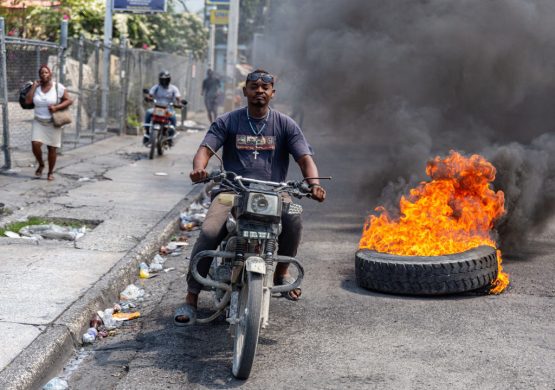Kenya har i over 20 år huset et stort antal somaliske flygtninge, men har for nylig deporteret de første par hundrede. Somalias regering stritter imod, og UNHCR advarer om, at store dele af Somalia er for usikkert at vende hjem til.
JOHANNESBURG/NAIROBI, 4 June 2014 (IRIN): As security forces in Kenya continue to round up and detain thousands of migrants, refugees and asylum seekers, most of them Somali, an agreement between the UN Refugee Agency (UNHCR) and the Kenyan and Somali governments on the voluntary repatriation of Somali refugees is coming under strain.
In late May, the Somali government pulled out of a meeting with UNHCR and the Kenyan government to formally launch a Tripartite Commission and discuss implementation of the Tripartite Agreement.
The Agreement, signed in November 2013, outlines the procedures for the gradual and voluntary return of Somali refugees from Kenya, which is currently hosting around 423,000 Somalis holding refugee status.
The scheduled 27 May meeting was to be first of the Tripartite Commission and was expected to produce agreements on a number of joint actions, including the launch of a pilot phase of a voluntary returns programme that has been on hold for several months.
The cancellation of the meeting stalls the dialogue on voluntary returns to Somalia where internal security is currently challenged due to a joint military offensive against the al-Shabaab insurgency by the African Union Mission to Somalia (AMISOM) and the Somali National Armed Forces (SNAF) in south-central Somalia.
Kenya wants commitment from Somalia
Recent estimates point to around 73,000 people being displaced due to the military offensive, including to some of the areas identified for voluntary refugee returns as part of the pilot phase.
Explaining its decision not to attend the meeting, Somalia cited “the detention and deportation of Somali refugees both documented and undocumented” which it described as contrary to the letter and spirit of both the 1951 Refugee Convention and “more importantly”, the Tripartite Agreement.
Kenya’s Commissioner for Refugee Affairs, Harun Komen, responded that Somalia’s decision not to attend the meeting was “unfortunate”.
“We are still committed to the Tripartite Agreement and Mogadishu must show it is committed as well,” he told IRIN.
He added that most of those repatriated would return to the Somali region of Jubaland and that if the Somali government failed to move the process forward, “we have options including dealing with the Jubaland administration or doing it with UNHCR.”
UNHCR did not comment directly on Somalia’s last-minute withdrawal from the meeting but its representative for Somalia, Alessandra Morelli, noted that “The way forward is to ensure that there is a strong dialogue and discussions on all aspects of returns and reintegration in Somalia. The Tripartite Commission is the most important forum and initiative in place to ensure that voluntariness will guide refugee returns and that those wishing to return to Somalia can do so in a safe and dignified manner.”
Arrests and deportations
Since Kenya’s Interior Ministry launched Operation Usalama Watch in late March, purportedly as an anti-terrorism operation, more than 4,000 individuals are estimated to have been arrested and detained, most of them ethnic Somalis living in the Nairobi suburb of Eastleigh.
A further 2,000 refugees have been sent to Dadaab and Kakuma refugee camps while 359 Somalis have been deported to Somalia by air using chartered commercial airlines flying from Nairobi to Mogadishu since early April.
Usalama Watch follows a spate of attacks involving grenades and firearms in Mombasa and Nairobi in March. Such attacks have continued since the start of the operation, which came soon after the government announced that all urban refugees had to move to the remote Kakuma and Dadaab refugee camps, despite a 2013 high court order prohibiting such a move.
According to Human Rights Watch (HRW), at least three of the recent deportees were registered refugees while many of the others may have had genuine claims to asylum but been unable to apply since Kenya stopped registering urban asylum seekers in December 2012.
HRW criticizes deportations
Fowzia Hussein Da’ud was among those who had tried and failed to register as an asylum seeker in Nairobi and as a result was considered undocumented.
She was detained by Kenyan police for 45 days before being deported to Mogadishu where she spoke to IRIN over the phone.
“I am so demoralized that I have been separated from my two kids who are now in Nairobi with relatives. I can’t stay here in Mogadishu; this is the place where my husband was killed six years ago,” she said, adding that she would like to move to Uganda but cannot afford to.
HRW has said that the deportations constitute refoulement, a violation of a key principle of international refugee law that forbids the forced return of people to places where they risk persecution or serious harm.
Security concerns trump tough living conditions
Læs hele artiklen her: http://www.irinnews.org/report/100166/kenya-turns-up-the-heat-on-somali-refugees














